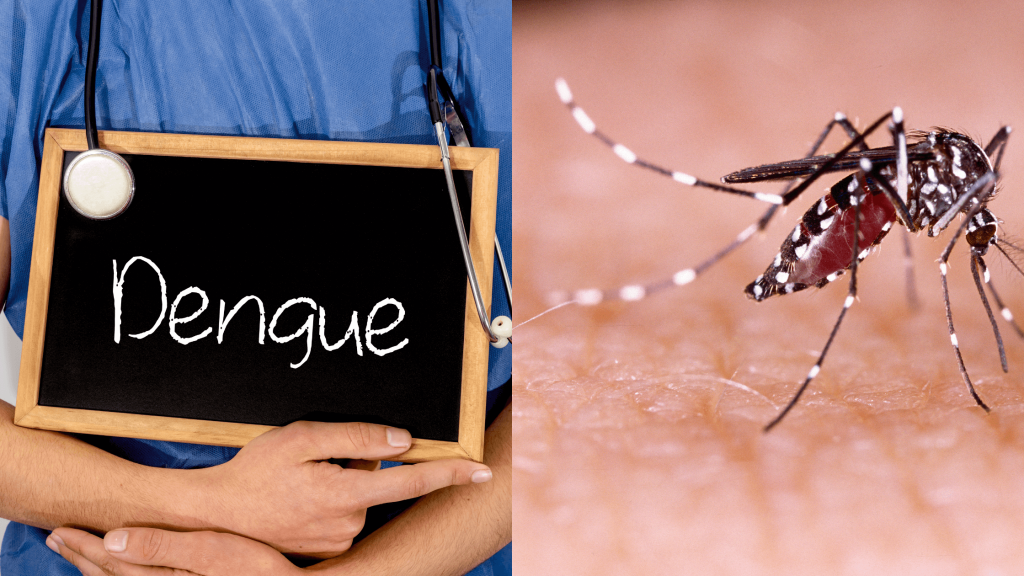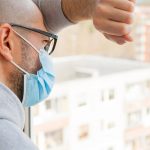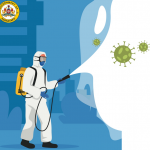
By Nagashree N
About two months ago, I was admitted to the hospital because I had tested positive for both dengue and COVID-19. Thankfully, I am more or less fine now but it will still take me a month to recover completely.
How it started
For more than six months since the pandemic, I had not left my house even once. But there’s only so much a person can humanly take. So two months ago, I left my house for a cup of coffee. The severe lockdown was fine, and people were back on the streets with masks and physical distancing. About two days later, I had a fever. I didn’t pay much attention to it, thinking it was probably due to the change in weather. However, my temperature rose at night. I couldn’t sleep because of the chills.
The next day, I went to the hospital. They didn’t admit me because of the ongoing pandemic situation. So I went to the clinic where the doctor asked me to go for a blood test. The reports confirmed that I had dengue, and I was put on medications.
Dengue and COVID-19
Even after diligently taking the medicines, my fever didn’t subside. On the third day, I went for a COVID-19 test. The report was positive, but I wasn’t convinced. I had heard a few rumours that the pathology labs were converting simple viral cases and passing them off as COVID-19 to earn extra money. Being a mass communications student, I had interviewed a person some days ago who had tested positive for COVID-19 first, but a second test on the same day showed negative. I opted for a second opinion, but that came out positive too.
I wasn’t sure if my situation was serious. Rushing to a quarantine centre didn’t appeal to me. I talked to the doctor and came home to quarantine myself in my room. That night, my situation worsened. I was running high fever to the point where I lost consciousness. Immediately, I was shifted to the hospital.
Situation in the hospital
I was taken to Apollo hospital where I was kept on a ventilator in an ICU for a day. The whole day, I was told that I was barely conscious and had severe breathing problems. The situation was critical and the doctor had declared that I might not make it. My mother wasn’t even allowed in the hospital because of the fear of contracting COVID. Thankfully, after about three days, the fever went down and I was discharged from the hospital. I was in home quarantine after that.
Home quarantine
The doctor had warned us that the first ten days will be critical. The fever kept fluctuating. I had to maintain the usual precautions and stayed in a separate room, used a separate washroom, and disposable utensils. The medicines made me sleep through most of the days. The fever didn’t reappear after the eighth day, and then after the second test on the fourteenth day, my results were negative. It will take quite a while for me to completely heal though. The doctor said it will be at least 50 to 60 days for complete recovery. My sense of taste and smell had gone (something typical of COVID-19) and I regained those after about 40 days.
The toll on the mind
While I was in the hospital, after the first day when I gained consciousness, I was quite scared. The doctor had talked to me about the severe situation, and I was terrified. Once discharged, I felt better. The fever was not difficult to deal with as it was something every human being is accustomed to. However, staying alone for fourteen days, eating food that my taste buds and olfactory senses couldn’t decipher, was difficult. The whole experience was more scarier for my mother… she prayed to every god she knew for my well-being. Thankfully, I am well on the way to recovery now.
(As told to Chandrima Mazumdar)

N Nagashree is a 24-year-old student, staying in RR Nagar, Bangalore.
————————————————————————————————–
What makes COVID-19 and dengue cases more complicated?
None of the diseases has a definite cure. Besides, B L Sherwal, Medical Director, Rajiv Gandhi Super Speciality Hospital (RGSSH), says the problem is complicated as the treatment is contradictory. For COVID-19, heparin is injected subcutaneously (which gradually reaches the blood) to prevent embolism. Embolism is the sudden blocking of an artery which can obstruct the flow of oxygen. However, in dengue cases, the infusion of platelets is required when they fall dangerously low, in which case heparin can’t be used. So, a fine balance is needed to treat a patient with dengue and COVID-19.
July-November is the dengue season
Dengue is a common occurrence in Bangalore from July to November every year, says Dr Prakash Doraiswamy, Senior Consultant – Anaesthesia and Critical Care, Aster CMI Hospital. Dengue is spread due to mosquitoes, so unless their breeding grounds (mostly places of stagnant and dirty water) are taken care of, dengue will continue to spread during these months. Though there are few fatal cases, staying inside homes is recommended to reduce exposure to mosquito bites. Both COVID-19 and dengue symptoms include joint and muscle pain, and headache; only acute breathing problems may be more to do with COVID-19. Therefore, for any kind of fever, get tested for COVID-19.
Dengue-safety tips
According to Dr Oliver Rodrigues who has 15 years of experience as a general practitioner in Bangalore, the papaya extract tablets prescribed for dengue patients have no clearance by any medical council. “They have no documented benefit, but they do cause side-effects, such as severe acidity, that worsens the patient’s condition,” he says.
Therefore, some of his tips for dengue patients are as follows:
- Do not panic
- No dietary restrictions
- No heavy medications, just the ones for fever, acidity and a vitamin supplementation
- Take plenty of fluids
- Avoid taking papaya leaf juices and other remedies which could aggravate symptoms, including acidity and vomiting that could worsen the patient’s condition
- Do not worry about dropping platelets. Instead, keep a watch on the Pack Cell Volume (PCV). If that shows a sudden increase in values, then the patient will need close monitoring
- Do not take painkillers of any form. They will contribute to a drastic fall in the platelet count. Rest and mild activity will help alleviate the pain. If needed, paracetamol will work
- In the test results, the following needs to be known: NS1 positive means new infection, IgM positive means about 3-5 days since dengue started, IgG means an older infection. The significance being that platelet drop is highest with NS1 and low to none with IgG positive
- Taking Vitamin D capsules may reduce the severity of the disease as some studies have shown. Therefore, it is part of the regular treatment protocol for COVID-19 patients. However, taking it regularly doesn’t protect you from contracting the illness
(With inputs from Qamar ZJ)




